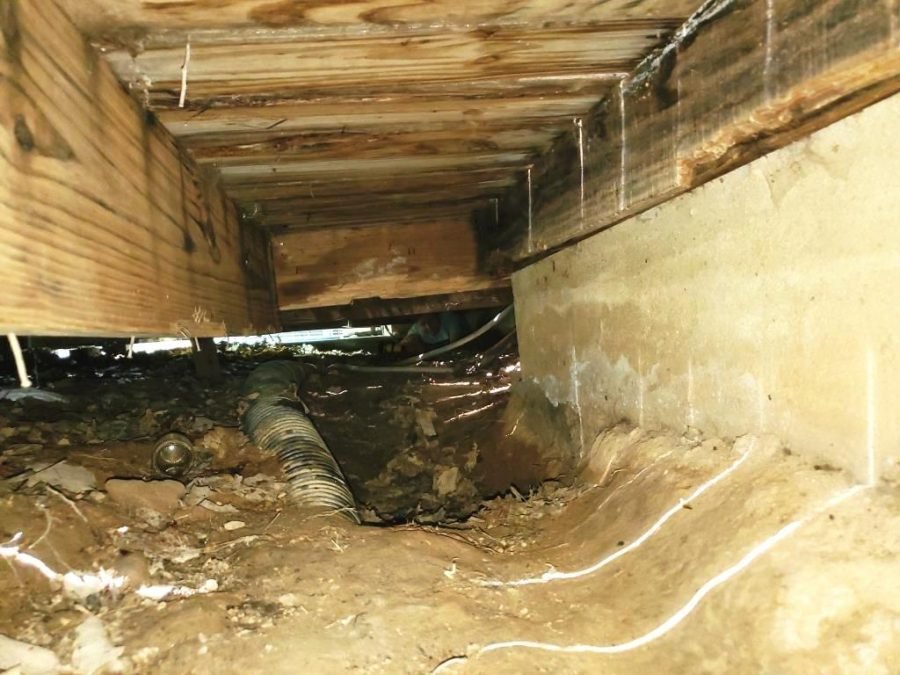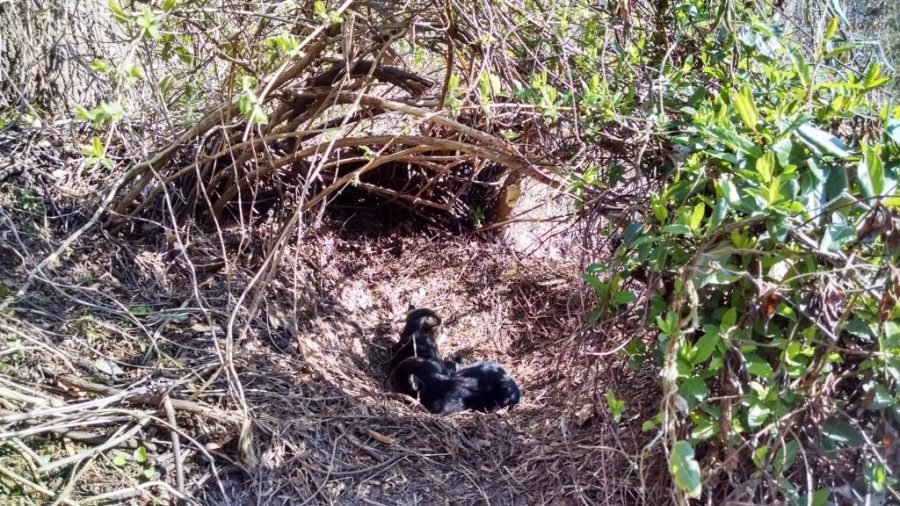Is That a Bear Den? Do Not Disturb!
Wildlife Agency Offers Help to Identify Bear Dens and Suggests Actions if One is Discovered
RALEIGH, NC (February 22, 2024) ⇒ What may initially appear to be just a pile of brush, a crawl space or a hollowed-out tree, may actually be the winter home of a bear, and possibly its cubs. If disturbed by humans, a bear may be inadvertently flushed from the den, and if it’s a female bear with cubs, she may orphan her cubs if humans do not leave the area immediately. Biologists at the N.C. Wildlife Resources Commission (NCWRC) recommend, if someone encounters a bear den, to remain calm, leave the area quickly and quietly, and do not disturb the den for the rest of the winter season.
Black bears are very resourceful in finding places to shelter from November through April as cubs are born and cold weather lingers. Dens come in many types and sizes, and exist in both wooded and developed areas, including neighborhoods. Bears have even been known to slumber in backyard brush piles, under decks and in crawl spaces. Black bears also use rock and tree cavities and excavations under fallen trees, or they build ground nests for their long winter nap. If the den is found under a deck, shed or crawl space, leave the area and call the NC Wildlife Helpline at 866-318-2401, or contact your local district wildlife biologist for further guidance. But in almost all cases, the best option is to simply stay away from the den area.

“We have experienced an uptick in bears denning under houses and decks over the last 10 years, as well as unleashed dogs disturbing bears in dens,” said Colleen Olfenbuttel, NCWRC’s bear expert. “Homeowners can safely coexist with the bears until they leave the den in the spring. This is because a denning bear is only interested in getting their winter rest or, if it’s a female, caring for her cubs. Denning bears are not interested in engaging with people as long as people leave bear dens alone. Disturbances by humans or their pets may cause the bear to leave permanently and orphan her cubs.”
NCWRC staff have been receiving reports from the public about the discovery of bear dens since November. In one case, a homeowner discovered a female with newly born cubs underneath their back deck.

“The bear seems to have given birth in early January, when the homeowners were alerted to the sound of cubs crying under their deck,” said Ashley Hobbs, NCWRC’s statewide BearWise® coordinator. “After speaking with the homeowners and inspecting the den site, we recommended the best course of action was to limit disturbance around the deck area until the bear emerges with her cubs in the spring. This will avoid disturbing the female and potentially orphaning the cubs.”
Hobbs also developed a plan for the homeowners to close the space under the deck once the bears vacate to prevent future access by bears and other wildlife. “The homeowners were receptive to the recommendations, and supportive of the steps they could take to coexist with the bear family.”
If NCWRC staff determine a cub has been orphaned in a den, they will capture and bring it to one of the licensed bear cub rehabilitation facilities with the goal to eventually return it to the wild. Since 1976, NCWRC has been rehabilitating and releasing orphaned black bear cubs through its cub rehabilitation program, which was one of the first of its kind in the country. NCWRC advises if someone believes a cub has been orphaned in a den, to not handle, feed or remove it from the area. Instead, note the location and contact the N.C. Wildlife Helpline at 866-318-2401, or your local district wildlife biologist for further guidance.
For more information on black bears visit Bearwise.org.

